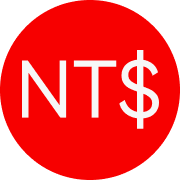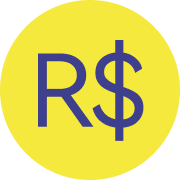
RBC to ILS Converter and calculator


Conversion rates
Convert RBC to ILS
Convert ILS to RBC
RBC to ILS chart
RBC to ILS conversion data: Volatility and price changes of Rubic in ILS
| Last 24 hours | Last 7 days | Last 30 days | Last 90 days | |
|---|---|---|---|---|
High | 0.03596 ILS | 0.03959 ILS | 0.05023 ILS | 0.06068 ILS |
Low | 0.03414 ILS | 0.03410 ILS | 0.03410 ILS | 0.03410 ILS |
Average | 0 ILS | 0 ILS | 0 ILS | 0 ILS |
Volatility | % | % | % | % |
Change | -0.14% | -15.41% | -21.83% | -30.91% |
Rubic information
RBC to ILS market statistics
Current RBC to ILS exchange rate
Rubic to Israeli New Shekel is falling this week.More info about Rubic on Bitget
Israeli New Shekel information
About the Israeli New Shekel (ILS)
What Is the Israeli New Shekel (ILS)?
The Israeli New Shekel (ILS), symbolized as ₪ and sometimes abbreviated as NIS, is the official currency of Israel. ILS is the international three-letter abbreviation for this currency, which has been in use since 1986. The new shekel replaced the hyper-inflated original shekel at a ratio of 1000 to 1. At the time of its introduction, it was identified by the abbreviation NIS to distinguish it from the old shekel. The Israeli New Shekel is subdivided into 100 agorot and is also used in the Palestinian territories of the West Bank and the Gaza Strip.
The Israeli New Shekel is issued by the Bank of Israel, which is the central bank of Israel. The Bank of Israel is responsible for the design, production, and distribution of the nation's currency, as well as for implementing monetary policy, maintaining financial stability, and managing foreign exchange reserves. The bank's role in issuing currency includes ensuring the security and integrity of the Israeli New Shekel, both in terms of coins and banknotes.
What Is the History of ILS?
The term "shekel" has ancient roots, originating from a Biblical currency and unit of weight. The modern Israeli currency system evolved through various stages, starting with the Palestine pound issued by the Anglo-Palestine Bank up to 1952. This was replaced by the Israeli pound (lira yisraelit) in 1952, which was in turn replaced by the shekel in 1980. Due to hyperinflation, the old shekel was replaced by the new shekel in 1986.
Notes and Coins of ILS
The Israeli New Shekel (ILS) features a diverse array of coins and banknotes that are not only integral to daily transactions but also reflect the country's rich cultural heritage. The coin denominations include 5 and 10 agorot, and ½, 1, 2, 5, and 10 new shekels. The Bank of Israel introduced a new series of coins with updated inscriptions in 2022. The banknotes, in denominations of 20, 50, 100, and 200 new shekels. The banknotes incorporate advanced security features and are printed by Orell Füssli Security Printing in Switzerland.
Economic Stability and Exchange Rates
Since the 1980s economic crisis, Israel has adopted conservative fiscal and monetary policies, leading to a more stable economy and currency. The new shekel has been a freely convertible currency since 2003 and is traded on global markets. Over the years, the shekel has strengthened against major currencies like the US dollar, reflecting Israel's growing economic stability.
The new shekel's value has fluctuated over time against various currencies. Its exchange rate against major currencies like the US dollar, euro, and pound sterling has been influenced by global economic trends and Israel's economic policies.
Is ILS a Strong Currency?
The Israeli New Shekel is recognized as one of the world's strongest currencies, a status supported by Israel's stable economy, low inflation, and substantial foreign exchange reserves. Ranking 12th globally in foreign investment, with significant growth in recent years, the shekel benefits from Israel's robust economic performance and investor confidence. The thriving technology sector and strategic global trade position further reinforce its strength. As a free-floating fiat currency, the shekel's value, notably strong against the US dollar, reflects market trust. Despite potential sensitivities to regional geopolitics and internal political shifts, the shekel's resilience, especially during global economic downturns, indicates a promising outlook for Israel's economy and its currency.
What Is the Difference Between Israeli New Shekel and Israeli Old Shekel?
The transition from the Israeli Old Shekel to the Israeli New Shekel marked a significant shift in Israel's monetary history, primarily driven by the need to combat hyperinflation and stabilize the economy. The Old Shekel, in circulation from 1980 to 1985, suffered from severe devaluation and economic instability, leading to its replacement in 1986 by the New Shekel at a ratio of 1000:1. This change was a crucial part of Israel's broader economic stabilization plan, which included adopting more conservative fiscal and monetary policies. The introduction of the New Shekel not only curbed the rampant inflation but also restored confidence in the national currency. It brought with it new banknotes and coins featuring updated designs and enhanced security features, reflecting both the cultural aspects of the time and the need for a more robust and stable monetary system.
Popular conversions










Hot promotions
How to convert RBC to ILS



Buy
Sell
| Merchants (trades/completion rate) | Price | Amount/limit Low to high | Payment methods | Zero fees Action |
|---|
Popular Rubic Converter









Popular cryptocurrencies to ILS










RBC to ILS Conversion tables
| Amount | 17:00 today | 24 hours ago | 24h change |
|---|---|---|---|
0.5 RBC | ₪0.01726 | ₪0.01728 | -0.14% |
1 RBC | ₪0.03451 | ₪0.03456 | -0.14% |
5 RBC | ₪0.1726 | ₪0.1728 | -0.14% |
10 RBC | ₪0.3451 | ₪0.3456 | -0.14% |
50 RBC | ₪1.73 | ₪1.73 | -0.14% |
100 RBC | ₪3.45 | ₪3.46 | -0.14% |
500 RBC | ₪17.26 | ₪17.28 | -0.14% |
1000 RBC | ₪34.51 | ₪34.56 | -0.14% |
RBC to ILS FAQ
What factors influence the conversion rate of RBC to ILS?
Popular exchange rates — Crypto-to-Fiat converter
The price of Rubic in the US is $0.009884 USD. Additionally, Rubic’s price is €0.008617 EUR in the eurozone, £0.007361 GBP in the UK, C$0.01358 CAD in Canada, ₹0.8582 INR in India, ₨2.8 PKR in Pakistan, R$0.05427 BRL in Brazil, and more.
The most popular Rubic currency pair is the RBC to Israeli New Shekel(ILS). The price of 1 Rubic (RBC) in Israeli New Shekel (ILS) is ₪0.03451.
Popular fiat
Popular areas
Purchase other cryptocurrencies with similar market cap











Other crypto price predictions
 Bitcoin(BTC)Price predictions
Bitcoin(BTC)Price predictions Ethereum(ETH)Price predictions
Ethereum(ETH)Price predictions Celestia(TIA)Price predictions
Celestia(TIA)Price predictions Solana(SOL)Price predictions
Solana(SOL)Price predictions Worldcoin(WLD)Price predictions
Worldcoin(WLD)Price predictions Bittensor(TAO)Price predictions
Bittensor(TAO)Price predictions Dogecoin(DOGE)Price predictions
Dogecoin(DOGE)Price predictions PepeCoin(PEPECOIN)Price predictions
PepeCoin(PEPECOIN)Price predictions Pandora(PANDORA)Price predictions
Pandora(PANDORA)Price predictions ORDI(ORDI)Price predictions
ORDI(ORDI)Price predictionsDiscover more cryptocurrencies
Latest coin listings on Bitget
























